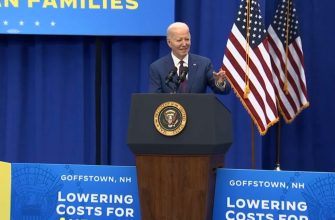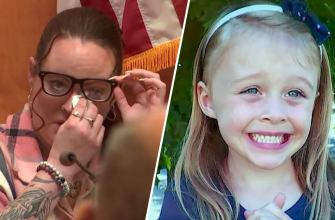Share this post or save for later
TOPEKA — Though Kansans and Missourians are still reeling from a February mass shooting that left dozens injured and one dead, a Kansas lawmaker is pushing to change gun regulations in the state so that the “feds” can’t interfere with gun owners like himself.
Rep. Michael Houser, a Columbus Republican, introduced the Kansas Gun Rights Preservation Act to ban state and local law enforcement from working with the federal government to enforce any federal gun law that “restricts the rights of law-abiding citizens to own or use firearms, accessories, or ammunition.” The bill also allows Kansans who believe their guns were wrongfully taken away to file a civil lawsuit.
Advertisement

House Bill 2803, heard Thursday by a House committee, could fine state and local agencies $50,000 for every violation of the act.
Houser used himself as an example of a law-abiding citizen that the legislation would protect. Houser said he owns a pistol brace.
“You’re gonna come help the feds take me to jail?” House questioned one of the law enforcement officers who testified against the bill. “… Me, a law-abiding citizen.”
Across the state, an average of 450 residents are killed by firearms each year, according to Everytown statistics. The state’s gun regulations allow anyone 18 or older and legally entitled to possess a firearm to openly carry a firearm in public without a license or permit. Anyone 21 or older can carry a concealed weapon without training or licensing.
In early February, 23 people were injured by gunfire and one woman was killed during the Kansas City Chiefs’ Super Bowl victory parade in Kansas City, Missouri.
“Almost every mass shooting in this country in the last 20 years has been committed by a person who was a law-abiding citizen until they started shooting other law-abiding citizens,” said Rep. Boog Highberger, D-Lawrence. “Personally, I’m more interested in protecting the rights of law-abiding citizens who are being shot than the law-abiding citizens who are doing the shooting.”
Houser said his guns were not harming people.
“My guns don’t hurt anybody. They’re locked up in a safe,” Houser said.
Officials from the Kansas Bureau of Investigation, Kansas Highway Patrol, Kansas Sheriffs’ Association and Kansas police officers, among other state law enforcement officers, spoke against the measure.
KHP reported seizure of 130 guns in 2023. If these seizures were in violation of the act, the organization could have faced up to $6.5 million in civil penalties under the legislation.
Law enforcement officials said the bill also could have a chilling effect on stopping crime because of the financial penalty. KBI officials pointed out that if one of their agents seized a gun during a criminal investigation and the person was either not charged or acquitted, the person could sue under the act. The bill also would nullify KBI agents from participating in federal task forces.
“The effect of frivolous lawsuits would be significant upon a state agency like the KBI and draconian in its effect on small departments and municipalities,” said Bob Stuart, executive officer with the KBI.
Bel Aire Police Chief Darrell Atteberry, legislative committee chairman for the Kansas Association of Chiefs of Police, said his organization’s opposition was about the bill itself, rather than partisan gun debate.
“This isn’t to us a red issue or a blue issue,” Atteberry said. “It’s just there are parts of this that we find objectionable, and we have concerns because some of it is vague. Some of it is unclear.”
Advertisement

The bill is one of several pieces of gun rights legislation being considered by legislators this year. More than 60 lawmakers have sponsored House Concurrent Resolution 5020, a proposed constitutional amendment that would protect possession and use of ammunition, firearm accessories, and firearm components.
In response to the Kansas City shooting and gun rights legislation, Kansas Senate Democrats have packaged and promoted four gun safety bills to address state gun violence.
Their legislation includes safe storage regulations, mandating background checks for all firearm purchases, prohibiting individuals younger than 21 from purchasing semi-automatic rifles, and requiring licenses for people who want to carry a concealed handgun.
“Kansas children deserve to learn and go about their lives free from the threat of gun violence,” said Senate Minority Leader Dinah Sykes, D-Lenexa. “Unfortunately, we have a do-nothing Republican Senate that has delivered no meaningful progress on gun safety legislation after the Chiefs parade shooting. With this legislative package, we’re answering Kansans’ call for common sense gun safety reform by putting safeguards in place to help keep dangerous weapons from falling into the wrong hands.”
Kansas Reflector is part of States Newsroom, a network of news bureaus supported by grants and a coalition of donors as a 501c(3) public charity. Kansas Reflector maintains editorial independence. Contact Editor Sherman Smith for questions: info@kansasreflector.com. Follow Kansas Reflector on Facebook and Twitter.
Don’t miss a beat … Click here to sign up for our email newsletters
Latest state news:
Share this post or save for later
A Kansas House committee plans to move ahead Wednesday with a bill exposing universities and colleges to $100,000 administrative penalties and lawsuits for compelling students or employees to pledge allegiance to diversity, equity and inclusion.
Share this post or save for later
Kansas is one of the few states left in the region that protects abortion rights. Unable to change state constitutional protections, some lawmakers are now doing their best to discourage abortion through a slew of legislation instead.
Share this post or save for later
The Kansas House’s budget committee delivered bipartisan condemnation Monday of unusual $3 million payouts to Emporia State, Fort Hays State and Pittsburg State universities intended to stabilize operating budgets during a period of enrollment decline and rising costs.
MORE …











